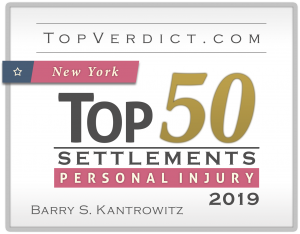The Federal Rules of Civil Procedure are the regulations that govern discovery (among other matters) in federal court. Discovery is the exchange of evidence and is often a source of disputes between plaintiffs and defendants in civil litigation. For example, what is the proper scope of discovery? Who will pay for the production? Can one party have the other pay for discovery production when it is overly broad or excessive?
discovery (among other matters) in federal court. Discovery is the exchange of evidence and is often a source of disputes between plaintiffs and defendants in civil litigation. For example, what is the proper scope of discovery? Who will pay for the production? Can one party have the other pay for discovery production when it is overly broad or excessive?
The Advisory Committee on Civil Rules reviews and amends these rules every few years, and offers new, proposed rules for attorneys comment and feedback. The latest proposed rules have not been free of criticism, as displayed in an article by Arthur H. Bryant of The National Review that can be viewed by clicking here.
The article reflected on three basic points:
- The committee backed off numerically limiting discovery after outcry by attorneys reviewing the proposed changes. The committee will continue with Rule 26(c)(1) as written, that each party is generally responsible for their own discovery production costs.
- The committee still is attempting to move forward with emphasizing “proportionality” and “cost-shifting” in discovery, which may result in a more narrow scope of discovery in practice.
- The article notes that language matters. “Civil procedure” is not simple rules and regulations; civil procedure greatly impacts the substance of cases.
Plaintiffs in class action lawsuits are already pegged as David against Goliath, and it is important that the discovery process remain broad in scope to uncover relevant information. Cost-shifting and reducing the scope of discovery in civil litigation may help the Goliath, the large corporate defendants, at the cost to David, the injured individuals. The courtroom ideally seeks to level this imbalance of power, and we must have rules and procedures in place to forward this goal.
What do you think about these proposals? Keep in mind, counsel typically advances the expenses incurred on behalf of a plaintiff and the legal fees are paid on a contingency basis in class action cases. This means that if you have a potential case, there is no reason not to contact an attorney.
KGG’s Gary S. Graifman, is a member of the Public Justice National Case Development Special Projects Committee. Graifman is our lead class action litigation attorney for national cases involving defective medical devices, dangerous pharmaceutical drugs, securities and shareholder litigation and automotive recalls.
To speak to us about a potential class action case, call (800) 711-5258 or fill out our online contact form. You should hold corporations and companies liable if you have been wronged.
Kantrowitz, Goldhamer & Graifman, P.C. – Class Action Lawyers






